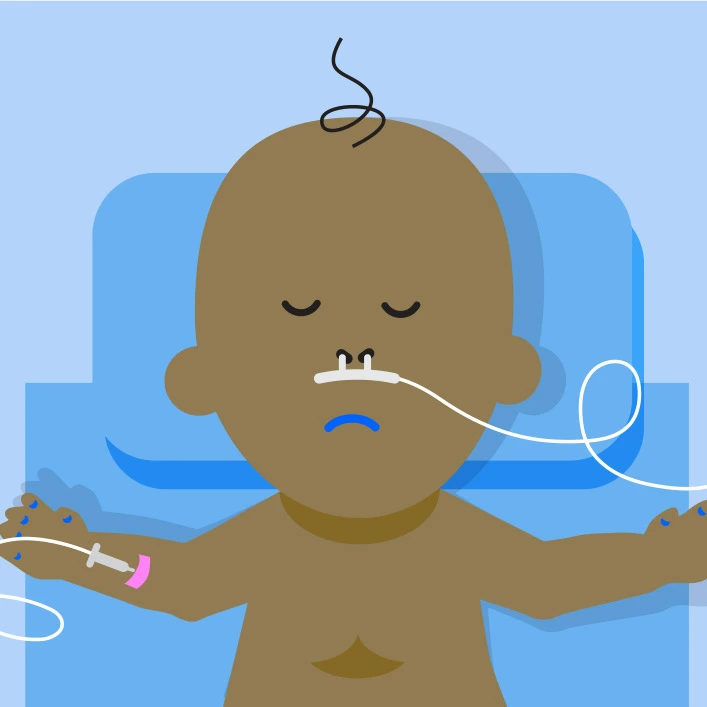Most people, including infants, develop only mild symptoms similar to that of a common cold but for some, RSV can be severe and even life-threatening.
RSV Prevention
RSV is highly contagious. Each year, an estimated 58,000-80,000 children younger than five years old are hospitalized due to RSV infection. Additionally, an estimated 60,000-160,000 older adults are hospitalized due to RSV.
There are options to help protect individuals at highest risk for getting severe RSV illness. These options are for infants, toddlers, and adults 50 years and older.
RSV Vaccination to Help Protect Older Adults
The CDC recommends RSV vaccination for all adults ages 75 years or older, and for adults ages 50-74 who are at increased risk of severe RSV. If you are 50-74 and:
- Have chronic lung or heart disease
- Have a weakened immune system
- Have severe diabetes or severe obesity
- Live in a nursing home
An RSV vaccination is recommended for you.
There are currently three licensed RSV vaccines for adults 50 or older.
Options to Help Protect Infants and Toddlers
The CDC has recommended two new ways to help protect your baby from severe RSV illness:
- A preventative antibody is recommended for all babies younger than 8 months old and born during or entering their first RSV season. Or,
- Receiving an RSV vaccination during pregnancy. This vaccine should be received if you are 32-36 weeks pregnant during RSV season (September through January).
The preventative antibody is also recommended for some children at increased risk between the ages of 8 and 19 months entering their second RSV season. Risk factors include:
- Chronic lung disease from being born prematurely
- Severe immunocompromise
- Severe cystic fibrosis
- American Indian and Alaska Native
Everyday Prevention Actions
There are some additional steps you should take to help prevent its spread. The most effective means of protection are some of the simplest, such as:
- Avoiding close contact with infected people
- Avoiding sharing cups, bottles or toys that may have been contaminated with the virus since the virus can live on surfaces for several hours
- Thoroughly washing hands with soap and water after coming into contact with an infected person
- Stay home when you are sick.
- Clean frequently touched surfaces.
How RSV Is Treated
Mild RSV infections will go away in a week or two without treatment. You can use over-the-counter fever reducers and pain relievers to manage your symptoms. Check with your doctor if you are not sure if an over-the-counter product is safe to give to your child. Your doctor may also suggest nasal saline drops or suctioning to clear a stuffy nose. Supportive care such as staying hydrated and comfortable is also helpful.
Possible RSV Treatments When Hospitalized
- Oxygen
- IV fluids
- Mechanical ventilation
- Tube feeding
- Suction of mucus
In severe cases, most commonly for infants younger than 6 months of age and older adults, hospitalization may be needed. The hospital will use intravenous (IV) fluids to aid in hydration, and a breathing machine or humidified oxygen to help your body receive the oxygen it needs. In most cases, hospitalization will only last a few days.
Page last updated: January 27, 2026





